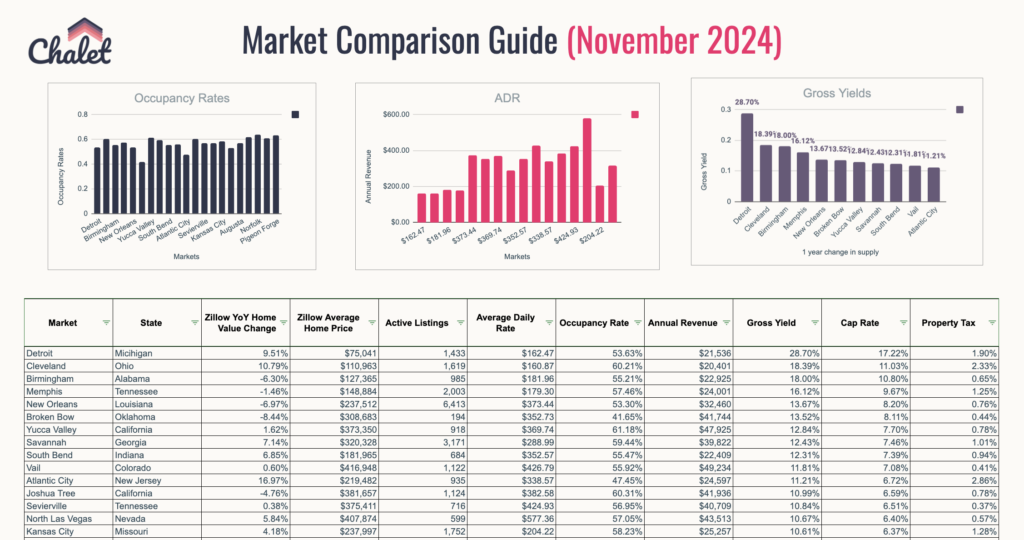Augusta, Georgia, renowned for hosting the annual Masters Golf Tournament, is a popular destination for tourists, making it a prime location for short-term rentals, or Airbnbs. However, as the market for these rentals grows, so does the complexity of regulations that hosts must navigate to operate legally.
This comprehensive guide will explore the current regulatory landscape for Airbnb hosts in Augusta, helping you understand and comply with local laws to ensure your hosting journey is both profitable and hassle-free.
Introduction to Short-Term Rentals in Augusta
In Augusta, a short-term rental is typically defined as any residential property rented out for less than 30 consecutive days. These properties are often listed on platforms like Airbnb, VRBO, and others, catering to travelers looking for temporary lodging with a home-like atmosphere.
Key Regulations for Airbnb Hosts in Augusta
1. Licensing Requirements
One of the fundamental steps to legally operate an Airbnb in Augusta involves obtaining the appropriate licenses:
- Short-Term Rental License: Hosts must apply for a short-term rental license issued by the City of Augusta. This requires submitting an application that includes property details and owner information.
- Business License: Depending on the location and setup of your rental, a general business license may also be required. This is particularly applicable if you manage multiple properties or operate your Airbnb as part of a larger business entity.
2. Safety and Compliance Inspections
Ensuring the safety of guests is paramount. Augusta may require your property to undergo safety inspections to comply with local building and fire codes. Common requirements include:
- Smoke Detectors: Installed in all sleeping areas and adjacent hallways.
- Carbon Monoxide Detectors: Required if the property has gas appliances or an attached garage.
- Emergency Exit Information: Clearly marked and accessible escape routes.
3. Tax Obligations
Airbnb hosts in Augusta are required to collect and remit various taxes, including:
- Local Hotel-Motel Tax: A percentage of the rental income must be collected as local tax, which is used to fund tourism-related activities in the city.
- State Sales Tax: As with most goods and services in Georgia, short-term rentals are subject to state sales tax.
- Occupation Tax: Similar to a business license tax, based on the type and volume of business conducted.
Platforms like Airbnb often collect and remit these taxes on behalf of hosts, but it’s crucial to verify that all tax obligations are being met correctly.
Top 200 Airbnb Rental Markets

Instantly compare top 200 short-term (Airbnb) rental markets in the US
4. Zoning and Land Use Restrictions
Zoning laws in Augusta can affect where short-term rentals may legally operate. Some areas may be zoned exclusively for residential use and prohibit commercial activities, including short-term rentals. Before setting up your Airbnb, check with the Augusta Planning and Development Department to ensure your property is in a compliant zone.
5. Neighborhood and HOA Rules
In addition to city regulations, local neighborhood or homeowners’ association (HOA) rules may impose further restrictions on short-term rentals. These might include limits on the number of rental days per year, requirements for guest parking, or noise ordinances.
Compliance and Penalties
Failing to comply with Augusta’s short-term rental regulations can lead to significant penalties, including fines and the possibility of having your license to operate revoked. The city’s enforcement measures are designed to ensure that all properties meet safety standards and do not disrupt local communities.
Benefits of Compliance
Complying with local laws not only avoids penalties but also enhances your reputation as a host, potentially leading to higher ratings and more bookings. Legal compliance also contributes positively to the community by ensuring that tourism benefits the city without negatively impacting the residents.
Resources for Airbnb Hosts in Augusta
To help navigate the complexities of local regulations, the following resources are invaluable:
- Augusta Planning and Development Department: Offers comprehensive information on zoning laws and property use.
- Augusta Revenue Department: Provides details on tax registration and collection processes.
- Local Airbnb Host Community Groups: Engage with other hosts to share experiences, tips, and advice on managing your rental.
Useful Links
Conclusion
Operating an Airbnb in Augusta, GA, offers a fantastic opportunity to generate income, particularly during high-demand events like the Masters Tournament. However, it comes with the responsibility of understanding and adhering to local regulations. By taking the time to educate yourself and comply with these laws, you can ensure a successful and sustainable short-term rental business.

